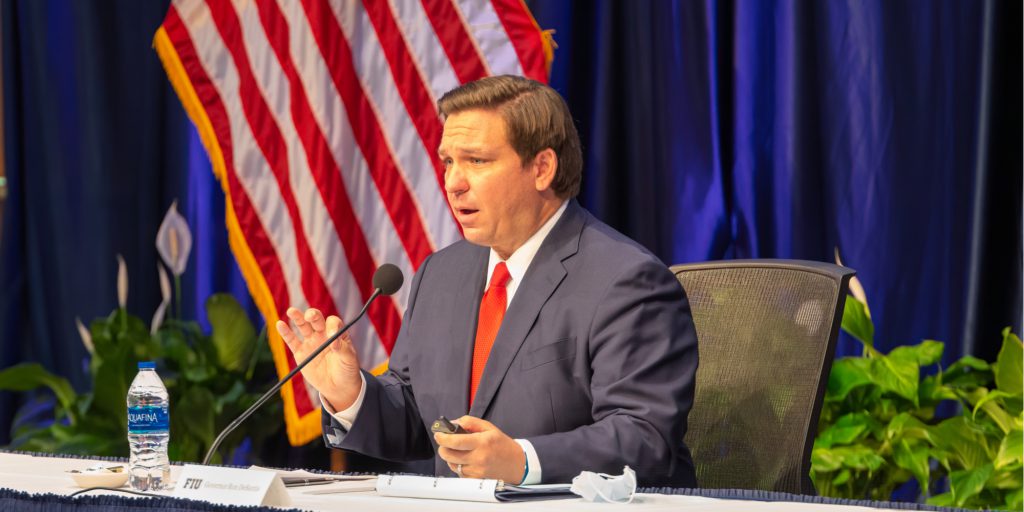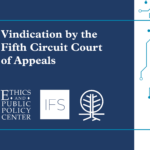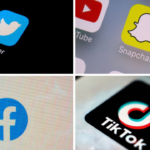
Published June 4, 2021
Florida Governor Ron DeSantis is taking a lot of heat for the recent social media bill he signed into law. The law prohibits social media companies from de-platforming political candidates in Florida and from banning any “journalistic enterprise doing business in Florida”—certainly pushing the First Amendment envelope. While there are real constitutional issues, there are also good parts of the new law that should be recognized. Furthermore, Florida, in its efforts to combat Big Tech’s censorship, is doing exactly what states in our constitutional order are meant to do—experiment with new types of law.
States are the laboratories of our democracy. As Justice Louis Brandeis wrote in the 1932 Supreme Court case of New State Ice Co. v. Liebmann: “It is one of the happy incidents of the federal system that a single courageous state may, if its citizens choose, serve as a laboratory; and try novel social and economic experiments without risk to the rest of the country.”
The complexity of online markets—and the threats the Big Tech giants pose to competition, children’s welfare and even democracy itself—call for greater involvement at the state level. The states must discover and test effective rules and regulations for our country. They provide a much lower-risk context to test out possible solutions. Other states will replicate laws that prove successful, and less successful models can be improved upon in incremental ways.
Importantly, state legislative efforts also stir Congress to act and legislate in areas where it has been hesitant. That’s true in this case. Despite a multitude of introduced bills, Congress has not yet passed anything to hold Big Tech accountable and protect our society against their political censorship.
Although critics of Florida’s bill argue that it violates the First Amendment, states may in fact impose non-discrimination requirements on common carriers or places of public accommodation. The Florida law does not explicitly apply these categories to social media, but courts might either construe such intent anyway or provide a road map for easily remedying the bill’s drafting for future draftsmanship. Crucially, the Act makes important distinctions between journalists and citizens, thus trying to obviate certain constitutional difficulties.
Despite the live constitutional issues, the good parts of Florida’s law should not be overlooked. Rather, states and Congress should both learn from them. The law’s disclosure demands—namely, that social media platforms must publish its standards and definitions for determining how to censor, de-platform and shadow-ban—are groundbreaking and highlight how social media’s covert promotion, deletion and hiding of user content undermines trust in democratic deliberation and public discourse. Similarly, the bill’s requirement that social media platforms provide users with the option of viewing un-moderated content is also a novel move that puts the power of content moderation where it belongs—in the hands of internet users themselves.
What’s more, the specter of court challenge should not paralyze legislators into inaction—pushing the legal envelope can still deliver positive legal change. After all, the Supreme Court has previously invalidated most of the Communications Decency Act of 1996, but what remained was Section 230—which many would argue is the fundamental law that gave us the internet we have today, and which still governs liability nearly 30 years after its passage. Our government was designed for the different branches to check and balance each other—a process that often achieves important results.
The problem of Big Tech’s censorship simply cannot be overlooked or ignored any longer. Social media platforms’ power to control our national political discussions is unparalleled in our history. Even if it is true, as critics of efforts to regulate Big Tech often point out, that on net conservative speech performs very well on social media, that doesn’t mean that particular instances of censorship can’t have big consequences. One need only look at a few instances, like de-platforming President Trump or stifling the New York Post‘s laptop exposé about Hunter Biden before the 2020 election, to see how content-moderation decisions against conservative speech endanger our democratic political system.
Florida is right to stand up to Big Tech companies in order to protect their political candidates and safeguard their elections. DeSantis is clearly moving the ball forward. No other state or Congress has passed any legislation close to it. Nothing. Of course, the first state out of the gate is going to be heavily criticized for its approach. But at least Florida is acting to combat Big Tech’s wanton censorship.
As Winston Churchill stated, “I never worry about action, but only inaction.” Florida’s action should galvanize other states to follow its lead and even improve upon its new law. In the meantime, we can trust our judicial system to iron out its wrinkles. Indeed, DeSantis’ efforts ought to precipitate even greater solutions in the months and years to come.
Adam Candeub is professor of law at Michigan State University and senior fellow at the Center for Renewing America. He was previously acting assistant secretary of commerce for communications and information.
Clare Morell is a policy analyst at the Ethics and Public Policy Center, where she works on the EPPC’s Big Tech Project. Prior to joining EPPC, she worked in both the White House Counsel’s Office and the Department of Justice, as well as in the private and nonprofit sectors.












